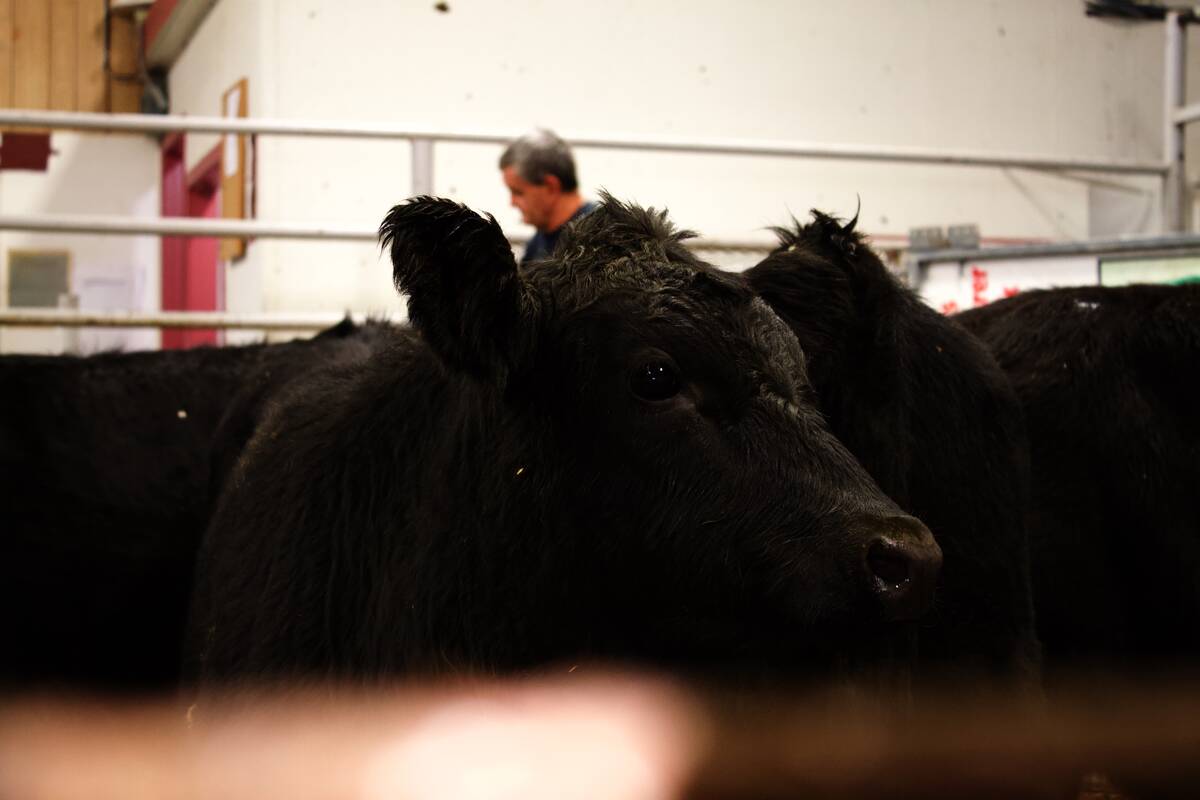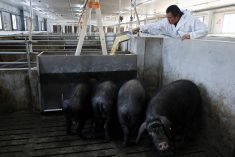Chicago | Reuters — Tariffs make it more complicated for Smithfield Foods, the biggest U.S. pork processor, to sell all parts of a pig, CEO Shane Smith said on Wednesday.
Why it matters: The U.S. is a key market for Canadian farmers’ live hogs and pork
U.S. President Donald Trump roiled agricultural markets by announcing tariffs last week on goods from China, Mexico and Canada, the top importers of American farm products. Two days after the announcement, Trump suspended most of the tariffs on Canada and Mexico for a month.
Read Also

U.S. livestock: Cattle rally, hogs rise
Chicago cattle rallied on Monday. Lean hogs also rose. Most-active April live cattle futures closed at 239.525 cents a pound,…
China retaliates
China, the world’s biggest pork consumer, retaliated with hikes to import levies covering $21 billion (C$30.2 billion) worth of American agricultural and food products.
Smithfield does not export material amounts of meat to China, but ships offal products, such as pig stomachs, hearts and heads that U.S. consumers generally do not eat, Smith said. The company believes China will still be the best market for offal with increased tariffs, he said.
“In fresh pork, it’s really about finding a home for every piece of that,” Smith said on a livestream of a Bank of America event.
“With the tariffs coming in, it makes it more complicated as you look around the globe and see how things are moving and how exchange rates are moving.”
Tariffs’ impact on Canadian hog imports
Tariffs can impact U.S. pork producers because they import piglets from Canada.
Canada last week suspended imports from Smithfield’s processing facility in Tar Heel, North Carolina, the biggest U.S. pork plant, due to an issue regarding offal, according to the company.
The halt was not related to tariffs, and Smithfield is working to resolve the issue, Smith said.
“There was a customer pickup and there was a problem when it reached the border,” he said. “We’re bringing that product back.”
Smithfield, which has about 34,000 U.S. employees, previously warned it could suffer worker shortages or higher employment costs if the Trump administration enacts new immigration laws.
“We’re paying close attention to all of the things that are coming out,” Smith said. “We personally haven’t seen a big impact, where we think maybe some others have.”















